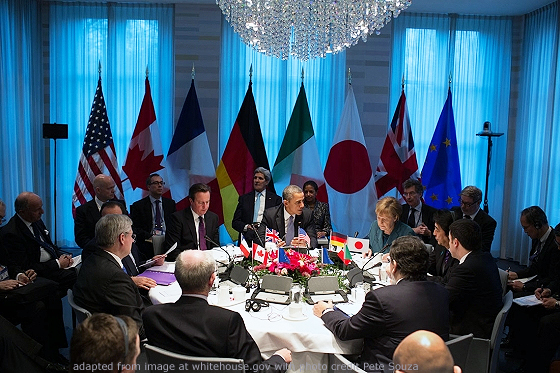Putin confesses he expected radical upturn in relations with West after fall of the Communist regime

(Interfax – April 26, 2015)
There was no point in counting on radical changes in the West’s attitude to Russia after the fall of the Communist regime, as each country has its own geopolitical interests not linked to ideology, President Vladimir Putin said in a documentary, titled “President,” released by the Russia 1 television channel.
“All of us had illusions. We thought then that after the Soviet Union’s breakup, after Russia voluntarily and knowingly accepted absolutely unprecedentewd curbs connected with surrender of its territories and production capacities, and after the ideological components dividing the former Soviet Union and the rest of the civilized world became a thing of the past – we thought then that, ‘the heavy-hanging chains will fall, the walls will crumble at a word, and Freedom greet us in the light, and brothers give us back the sword,'” Putin said making an allusion to Alexander Pushkin’s poem “In the Depth of Siberian Mines.”
“However, the ‘brothers’ abroad were in no haste to give us back the sword, but gladly grabbed the remains of the Soviet Union’s former power,” he said.
Putin confessed that even though he had worked with the foreign intelligence service for about 20 years by that time, he had illusions about prospects of establishing good relations with the West.
“Even I thought that after the fall of this ideological obstacle – the Communist Party’s monopoly on power – everything would change radically. No. No radical changes followed because, as we could see, there were geopolitical interests not connected with any ideology at all,” he said.
Our partners in the West needed to realize that a country like Russia did have and could not have existed without geopolitical interests, and that “we should treat each other with respect and look for mutually acceptable solutions,” Putin said.
Putin and the then U.S. president George Bush had “an excellent relationship,” Kremlin chief of staff Sergei Ivanov recalled.
However, the U.S. came to believe by that moment that Russia “entered a regime of colonial democracy, that we sort of got hooked on International Monetary Fund injections and that the experts’ community must continue teaching us how we should further develop our economy and where we should pump our oil,” he said.
“On the surface, though, everything looked extremely tactful: they would pat us on the shoulder and cheer us up: guys, your are sort of moving in the rights direction,” Ivanov said.
